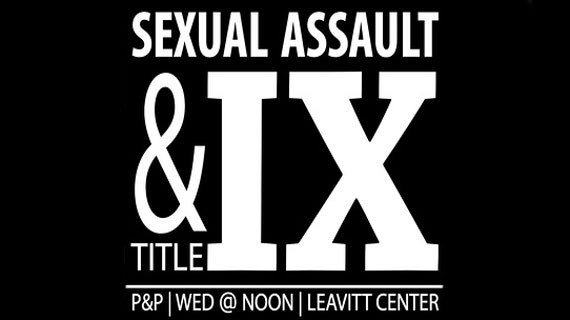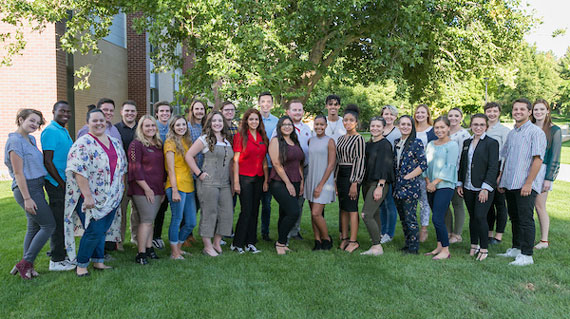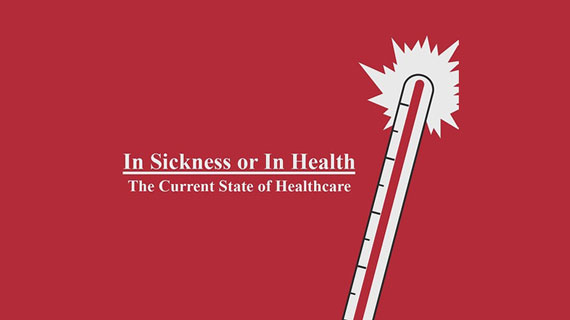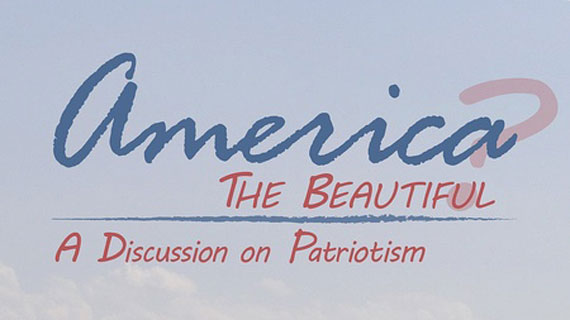Pizza and Politics- Sexual Assault and Title IX
Posted: March 07, 2018 | Author: Cami Mathews | Read Time: 4 minutes

The Michael O. Leavitt Center for Politics and Public Service hosts Pizza & Politics every Wednesday at noon to discuss a current political topic. Leavitt Center student employees research the topic and moderate the conversation. These discussions expose students to a variety of important issues and encourages them to share their own perspectives while learning all sides of an issue. Free pizza is provided for all who attend.
This week’s discussion was moderated by Morgan Barney, a junior Spanish major with a minor in both Legal Studies and Creative Writing from Hatch, Utah, and Taylor Cella, a junior Information Systems major from Syracuse, Utah. The conversation focused on the policy of sexual assault and Title IX.
Title IX was created in 1973 and enforced by the Department of Education. It prohibits sex discrimination and covers sexual harassment and sexual violence. Title IX also requires schools to remedy hostile educational environments and reduces or removes federal funding from non-compliant schools.
For Title IX and college campuses, federal law requires schools to publish and make available a non-discrimination policy, hire a Title IX coordinator to ensure the institution is compliant with regulation, and create a grievance procedure for addressing sex discrimination, sexual harassment, and sexual violence occurring within educational programs. Complaints must be remedied in a timely manner regardless of simultaneous police investigation.
Are Title IX regulations too strict, or not strict enough?
With college campuses, the audience felt that more could always be done. Until there are zero sexual assault cases or Title IX issues, a college campus can handle stricter regulations. The discussion focused more on what should happen if schools are not compliant with Title IX standards.
Currently a school will lose funding, but many felt that was not enough. For athletic-based Title IX issues, many felt a three-strike system would work best. A loss in funding can be an issue, but consequences like shutting down entire programs could have a stronger impact.
Does the Title IX investigative process favor the rights of the accuser or the accused?
In a perfect world, a legal process would not favor any side, it would merely reflect the law. During the Obama Administration, Title IX required schools to wrap up investigations in 60 days, gave clear guidelines for students’ gender identity, and focused mainly on the accuser’s rights. The Trump Administration has changed the investigation deadline from 60 days to a “reasonably prompt” timeline. It has removed guidelines for students’ gender identity and focused on balancing the rights of the accuser and the accused.
The room, quite frankly, was split between those that assume sexual assault allegations are false and those that think each case should be handled effectively and immediately to help the accuser. Many voices felt that favoring the accuser would lead to false accusations for political or personal gain. Others stood their ground for accusers explaining that the courage and effort taken for someone to speak out on sexual assault is admirable and worth protecting.
What quality of education does SUU provide in regards to Title IX?
Currently at SUU there is a Title IX website, a Title IX coordinator, online courses, red information cards for faculty and staff, and events throughout the year such as Brenda Tracy, Janet Judge, and Thunder U.
Students were very vocal with their overall negative experiences with the Title IX office. Many felt that the quality of education was lacking. The “required” Title IX presentation at Thunder U is often skipped or attended by disengaged people. One person said they took their Title IX training online by skipping all videos, answering the few easy questions, and not retaining any information. Students felt that the office should have training throughout college, not packed into a student’s first week on campus.
Does the campus provide enough resources to victims of sexual assault?
According to the January 2018 Trustee Report, Counseling and Psychological Services (CAPS) has seen a 40% increase in requests for counseling, has returned to a 7 to 8 week waiting list, is working with 26 students who have been raped while in college, of which about 50% have experienced their assault during the past 6 months. There are also other crimes being death with including assault, domestic violence, religious discrimination, and stalking.
CAPS has been able to add a psychiatrist who comes in person once per week. This means no more telemedicine which is a large improvement for the organization.
Thoughts on campus resources came to a consensus that there is not enough. One student voiced his opinion on male victim resources. He felt that a majority of the resources are for women and would love to see more help for male victims of sexual assault. Others also stated that a 7 to 8 week waiting list is not helpful for many students. CAPS does has a crisis line that can find you an appointment within 24 hours, but that is only for extreme cases.
Overall, students felt that Title IX and sexual assault were topics that should be discussed more throughout their time at SUU. They felt that the campus could be doing more in providing resources and other help, but that as a community people could work together to help each other during difficult times.
For more information on the Leavitt Center, visit their web page.
This article was published more than 3 years ago and might contain outdated information or broken links. As a result, its accuracy cannot be guaranteed.
Tags: Leavitt Center CAPS




